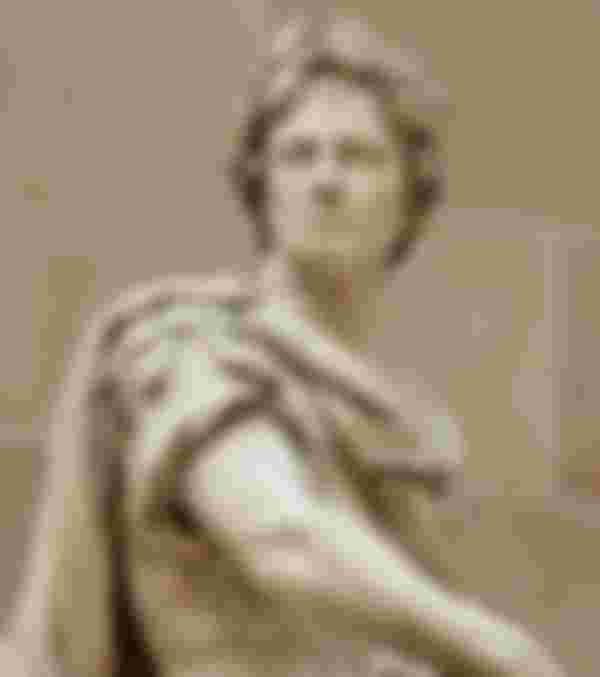"Are you, too, son of Brutus?" But before we get to these words and to the assassination organized by the state, this statesman, general and dictator, conquered half the world and still found time to have fun with Cleopatra.

The life of Julius Caesar
Julius Caesar was born in 100 BC. in Rome, in a famous but not wealthy family. His father passed away when Julia was very young, so he grew up only with a mother to whom he was very attached. Caesar married Cornelia, a girl from an aristocratic family, which angered the dictator Sula, who ordered the couple to divorce under the threat of taking away all their property.
Caesar refused, and then left Rome to serve in the army in Sicily and Asia. When dictator Sulla passed away, Caesar returned and began his political career as a lawyer, thus opening a new chapter in the history of the Roman Empire.
He traveled to Rhodes to study philosophy but was kidnapped by pirates on the way there. He persuaded his captors to demand a ransom, and then organized naval forces, captured the pirates and sentenced them to death.
When he returned to Rome, Caesar performed several government functions under Gnaeus Pompey, and in 60 BC. he was elected consul. His private life, however, was affected by the tragedy when his wife Cornelia died. Two years later he married Pompey, a distant cousin of Pompey. His political career nevertheless continued.
Coming to power
Together with Pompey and Marcus Licinius Crassus, Caesar formed the First Triumvirate, a political alliance that gave him great power and represented a springboard for even greater domination. The first controversial move he made was to bribe Pompey's soldiers to organize a revolt. 59 BC Caesar became the ruler of Gaul and Spain, and in 55 he tried to invade Britain, which ended in failure. Three years later, in the year 52 p.n.e. he defeated an alliance of rebels from Gaul. His popularity among the Roman people grew more and more, but Pompey, who envied Caesar for his political power and success, was not thrilled by it, and Crassus felt contempt for Pompey.
Caesar tried to smooth out the disagreements by sending Krasus to Syria and Pompey to Spain. Krasus was killed in battle in Syria, and Pompey returned to Rome. Intolerance towards Caesar eventually reached a boiling point, so a civil war broke out.
After waging war with his former ally Pompey, Caesar found himself in Egypt, pursuing him. Pompey was already executed when Caesar arrived, but he decided to stay in Egypt, where he interfered in the politics and rule of Queen Cleopatra, with whom he had a son, Caesarion.
He was proclaimed a lifelong dictator in 45 BC. and was called the Father of his country after returning from Egypt. In the seventh month, Quintile was renamed after him and since then he has been known as Jul. Coins also bore his image. Caesar also became the author of many important political writings.
However, his obvious arrogance and ambition brought him unpopularity and suspicion of the people. He carried out numerous political reforms, which served to enable him even greater power and set him apart from other senators. 46 BC he declared valid a law which allowed him to establish moral principles, and which applied to all but himself. Caesar also used this power to bring only his supporters to the senate, demanding that they grant him honors and titles. He also increased the number of senators allowed in the Senate.
The death of Caesar and the collapse of the Roman Republic
Caesar was in the Senate on March 15, 44 BC. killed by a group of conspirators (including his adopted son Brutus) who wanted to save Rome from Caesar's monarchist ambitions. His last words, "Are you, son of Brutus?" William Shakespeare made immortal.
The struggle for supremacy erupted after his death and led to the disintegration of the Roman Republic. People of the middle and lower classes were outraged that he had been killed by a group of aristocrats. The mob attacked the homes of Brutus and Cassius at Caesar's funeral.
Caesar's successor, Gaius Octavian, reacted to this by raising an army to attack the troops organized by Brutus and Cassius. The 18-year-old originally collaborated with Mark Antony to defeat this army. However, he also had to fight against Antony himself, who allied himself with Cleopatra in order to take power over the Roman Empire. Octavian defeated them and became the first Roman emperor.

a man who overshadowed all Roman rulers and cast them into deep shadow with his successful warfare and state affairs